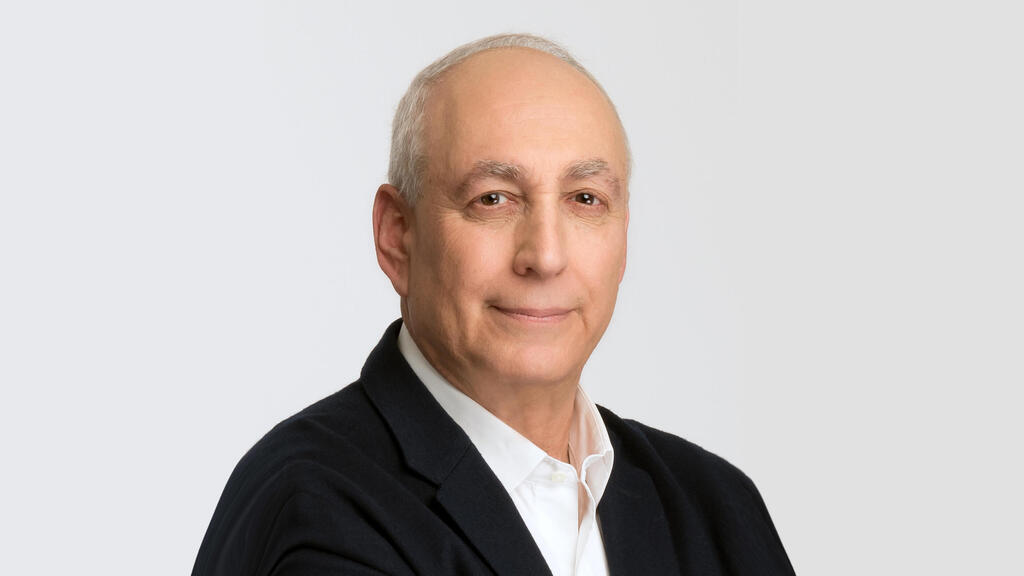
Opinion
Calibrate bigger: Rapidly adapting to a paradigm shift in tech investment
"If we turn our people into enthusiastic embedders of technology, if we share the benefits of dual use, if we end political disruptions, and if we move towards a more peaceful era, then we can meet every challenge posed by evolving global calibrations," writes Chemi Peres, Managing Partner and Co-Founder at Pitango.
The global investment scene is, once again, recalibrating in response to sea changes that are already underway. Hyperscale companies, activist CEOs, GenAI, and other developments are creating a new reality – and taking the industry to new heights that are as challenging as they are ambitious.
There’s a new kind of hero in the entrepreneurial skies. They dream big – global-impact-level big – and that shapes the dreams of investors as well.
But they do much more than dream. These high-powered leaders head up multiple companies at once, build for the long haul, and interact directly with governments.
They reflect the arrival of what I like to call “giraffes” – hyperscale companies that can be a thousand times larger than unicorns – and the introduction of new technologies that are completely rewiring how the world around us works. We are experiencing a step function relative to what we’ve seen so far. The level of disruption is huge, valuations are exploding, and the definition of success itself is being redefined.
This paradigm shift is changing what investors look for in companies and CEOs. New references are fine tuning the calibration parameters that shape expectations and negotiations, bringing them in line with a new era of huge businesses and long-haul investments. For a small country with large ambitions, like Israel, this is a major opportunity. With our dynamic and responsive innovation-driven ecosystem, we can become the most productive and efficient economy in the world.
It all depends on the right calibration.
How we got here
Calibration is based on a company’s long-term vision of itself and its business roadmap. This sets the stage for what to expect, where the company is heading, and what it’s likely to achieve. But no investment takes place in a vacuum. Every investor and founder must take into account the relevant business environment, market-level trends, and comparable success stories (references) in order to effectively calibrate expectations, valuations, and investment levels. That means such calibrations are not static, with new role models, technologies, and risk calculations impacting the high-tech industry all the time. And the pace of change is only accelerating.
When Israel was just beginning its journey as the “Start-Up Nation” in the early 1990s, investment in Israeli companies was primarily focused on R&D and creating IP. Calibration was geared towards matching the company’s tech to fit a (mostly US-based) enterprise, with the goal of being acquired or signing an original equipment manufacturing (OEM) agreement. The aim was the rapid exit – from tens of millions to maybe a hundred million dollars – and on to the next project. The era of the serial entrepreneur was born.
Then, a new phenomenon arrived in force: the internet. Business models changed dramatically, start-ups had to raise more money and onboard people who understood how to excite the imagination of investors. It was at this stage that a lot of investment banking firms stepped into the world of VCs and entrepreneurship, enthusiastically relaxing their normally conservative approach. Calibration changed dramatically, with a shift from seeking the exit to reaching an IPO as soon as possible.
Eventually, however, reality caught up with the hype. The stock market crashed, the bubble burst, and yet another recalibration took place. Those companies that survived sought ways to spend money efficiently, to get to revenue faster, and to improve profitability. The goal was to build a viable business, not getting acquired or going public.
Related articles:
The next calibration developed somewhat slower, based on past models and on a period of low interest rates. Investors looking for better returns were willing to explore alternative assets, as long as they showed sustainable continuous growth. This led to entrepreneurs in certain sectors raising a lot of money by shining a light on other companies in their field, the size of the market, past investment rounds, and – importantly – revenues in the company’s early days. The focus was not strictly on the value they created, but on the valuation they could present. Spending was not an issue as long as the company was in “growth mode” and valuation expectations could be sustained.
It was the age of the unicorn – a golden age for start-up fundraising, with valuations established in the private market, where there is little regulation and a lot of personal trust. But unicorns, as we all know, are imaginary. You began to see a $1 billion market cap, for example, for a company that could not justify it economically.
And then came Covid-19.
Alongside its social and healthcare devastation, the pandemic created a financial crisis, shredded job security for many people, and changed the way we did business. New technologies were introduced or adopted at massive scales, while the internet continued to expand its role in our lives. These changes revealed which companies brought measurable value to the table and which did not, despite their high valuations.
As interest rates went up and investors became more hesitant to invest in high-valuation private companies, liquid and fixed income assets became more attractive. As a result, the market saw a new calibration. Companies had to once again focus on going public, but this time with an eye to long-term stability and personal commitment.
Unicorns still appeared, but those that were able to demonstrate true value began to evolve into real giants - the giraffes. A growing number of companies are developing in that direction even now.
The empire builders
Realizing that building a giraffe can take a lifetime, some very unique entrepreneurs started to move from serial entrepreneurship to parallel entrepreneurship. The most exceptional serve as CEO in more than one company simultaneously.
And then something else happened when CEOs became long-term fixtures of such large-scale, multi-sector enterprises. They are no longer just company heads; they are leaders of empires that bump up against governments, impact entire economies, and change the lives of human beings all over the world. Realizing the influence they have, some of these leaders are taking greater responsibility for the future of humanity and tackling issues like global transportation, energy, education, global conflict, and more. They feel they can offer a lot of solutions (think dual-use, space and medical technology, for example) that governments simply cannot.
What it means for Israel
New calibrations and references are emerging rapidly, but naturally, in response to an array of influences. While there are currently just a few giraffes, and not every company can reach that height, we do not know what the limits are. The question is what it takes to get there in terms of time, investment, marketing, and human resources.
I believe that Israel can become an epicenter for such a recalibrated investment ecosystem. We have the potential to be the largest economy in terms of GDP per capita, bypassing many countries that are far richer than us in land, natural resources and markets.
All it takes is creating an environment in which entrepreneurs have the freedom to dream big, focus on what they do best, and benefit from financial incentives and social encouragement. If we turn our people into enthusiastic embedders of technology, if we share the benefits of dual use, if we end political disruptions, and if we move towards a more peaceful era, then we can meet every challenge posed by evolving global calibrations.
That's the promise of Israel – we can make it a reality.
Chemi Peres is the Managing Partner & Co-Founder at Pitango.
